Fleurs du Mal Magazine


Or see the index
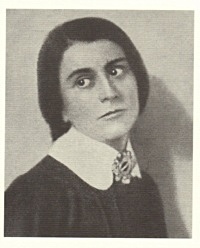
George Grosz
Manchmal spielen bunte Tränen
In seinen äschernen Augen.
Aber immer begegnen ihm Totenwagen,
Die verscheuchen seine Libellen.
Er ist aberglaubig–
–Ward unter einem großen Stern geboren–
Seine Schrift regnet,
Seine Zeichnung: Trüber Buchstabe.
Wie lange im Fluß gelegen,
Blähen seine Menschen sich auf.
Mysteriöse Verlorene mit Quappenmmäulern
Und verfaulten Seelen.
Fünf träumende Totenfahrer
Sind seine silbernen Finger.
Aber nirgendwo ein Licht im verirrten Märchen
Und doch ist er ein Kind,
Der Held aus dem Lederstrumpf
Mit dem Indianerstamm auf Duzfuß.
Sonst haßt er alle Menschen,
Sie bringen ihm Unglück.
Aber Georg Grosz liebt sein Mißgeschick
Wie einen anhänglichen Feind.
Und seine Traurigkeit ist dionysisch,
Schwarzer Champagner seine Klage.
Er ist ein Meer mit verhängtem Mond,
Sein Gott ist nur scheintot.
Else Lasker-Schüler
(1869 – 1945)
George Grosz
aus: Die Kuppel. Paul Cassirer, Berlin 1920
• fleursdumal.nl magazine
More in: Archive K-L, Archive K-L, Expressionism, Expressionisme, FDM in Berlin, Lasker-Schüler, Else
A luminous new collection from Keetje Kuipers, All Its Charms is a fearless and transformative reckoning of identity.
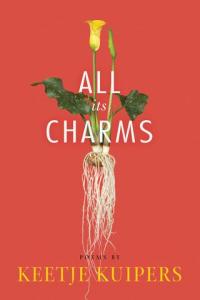 By turns tender and raw, these poems chronicle Kuipers’s decision to become a single mother by choice, her marriage to the woman she first fell in love with more than a decade before giving birth to her daughter, and her family’s struggle to bring another child into their lives. All Its Charms is about much more than the reinvention of the American family—it’s about transformation, desire, and who we can become when we move past who we thought we would be.
By turns tender and raw, these poems chronicle Kuipers’s decision to become a single mother by choice, her marriage to the woman she first fell in love with more than a decade before giving birth to her daughter, and her family’s struggle to bring another child into their lives. All Its Charms is about much more than the reinvention of the American family—it’s about transformation, desire, and who we can become when we move past who we thought we would be.
Keetje Kuipers is the author of three books of poems: Beautiful in the Mouth, The Keys to the Jail, and, most recently, All Its Charms, which includes poems honored by publication in both The Pushcart Prize and Best American Poetry anthologies.
Her poetry and prose have appeared in Narrative, Virginia Quarterly Review, The New York Times Magazine, The Believer, and over a hundred other magazines. Her poems have also been featured as part of the Academy of American Poets’ Poem-a-Day series and read on NPR. Keetje has been a Stegner Fellow, a Bread Loaf fellow, and PEN Northwest’s Margery Davis Boyden Wilderness Writing Resident. She lives with her wife and children on an island in the Salish Sea, a short ferry ride away from Seattle where she is Editor of Poetry Northwest.
(. . .)
I climbed the red rocks robed in their red dust.
I put the earth—all its charms—within me,
into each waiting pocket. Lip and ear.
What will happen when my body can no longer
hold this fragrant salt, its hardened tears,
inside? Let mine into the dirt. The names
I’ve chosen for my children are already fast
across the sky like the ochre feathers that frame
the blackbird’s shrug.
(. . .)
Fragment of ‘Landscape with Sage and the Names of My Children’
All Its Charms
By: Keetje Kuipers
Language: English
Paperback: 112 pages
Publisher: BOA Editions Ltd.
Publication Date: April 23, 2019
ISBN-10: 1942683766
ISBN-13: 978-1942683766
Regular price $ 17.00
# new poetry
Keetje Kuipers:
All Its Charms
• fleursdumal.nl magazine
More in: - Book News, Archive K-L, Archive K-L, Kuipers, Keetje, MODERN POETRY
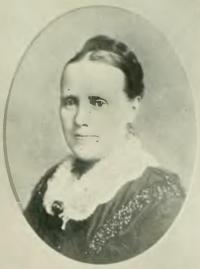
Maude.
A Ballad Of The Olden Time
Around the castle turrets fiercely moaned the autumn blast,
And within the old lords daughter seemed dying, dying fast;
While o’er her couch in frenzied grief the stricken father bent,
And in deep sobs and stifled moans his anguish wild found vent.
“Oh cheer thee up, my daughter dear, my Maude, he softly said,
As tremblingly he strove to raise that young and drooping head;
‘I’ll deck thee out in jewels rare in robes of silken sheen,
Till thou shalt be as rich and gay as any crowned queen.”
“Ah, never, never!” sighed the girl, and her pale cheek paler grew,
While marble brow and chill white hands were bathed in icy dew;
“Look in my face – there thou wilt read such hopes are folly all,
No garment shall I wear again, save shroud and funeral pall.”
“My Maude thou’rt wilful! Far away in lands beyond the sea
Are sunny climes, where winter ne’er doth wither flower or tree;
And there thou’lt journey with me, till I see thee smile once more,
And thy fair cheek wear the rose’s hue as in the days of yore.”
“Ah, no roses shall I gather beneath a summer sky,
Not for me such dreams, dear father, my end is drawing nigh;
One voyage is before me, ’tis no use to grieve or moan,
But that dark, fearful journey must I travel all alone.”
“My precious child! last of my race! why wilt thou grieve me so?
Why add by such sad words unto thy grey haired father’s woe?
Live – live, my pearl! my stricken dove! earth’s joys shall all be thine;
Whate’er thy wish or will through life, it also shall be mine.”
Fast coursed the diamond tear drops down that fair, though faded, cheek,
And she whispered, but so softly, one scarce could hear her speak:
“Ah! father, half those loving cares when summer bright was here
Would have kept thy daughter with thee for many a happy year.
“But, ah! thy heart was marble then, and to thy direst foe,
More stern, relentless anger thou couldst not, father, show.
What was my crime? The one I loved, not rich but nobly born,
Was loyal, true, on whom no man e’er looked with glance of scorn.
“He wooed me fairly, father dear, but thou did’st often swear
Thou’dst rather see me in my grave than bride to Hengist’s heir.
Reckless, despairing, he embarked upon the stormy main,
To seek an end to grief and care, nor sought he long in vain.
“Calm and untroubled sleeps he now beneath the salt sea brine,
And I rejoice to think how soon that sweet sleep shall be mine!”
No answer made the father but a low and grief-struck moan;
And silence reigned again throughout that chamber sad and lone.
Sudden the girl starts wildly, with bright and kindling eye,
Her cheek assumes a crimson tint like hue of sunset sky,
“Father! that voice, that rapid step, ah, me! they are well-known,
Hengist who comes from ocean’s deeps to claim me for his own!”
Say, does she rave? No. See yon form, with proud and gallant brow,
Bending above her, whisp’ring low, fond word and tender vow:
“Maude, my own love! no spectral form, no phantom’s at thy side,
But thy girlhood’s lover, now returned to claim thee as his bride.”
The story runs that love and youth o’er death the victory won,
And again did Maude, a happy wife, play ‘neath the summer sun,
While the old lord, grateful to the Power that Hengist’s life had spared,
Henceforth in all his children’s bliss, hopes, sorrows, fully shared.
Rosanna Eleanor Leprohon
(1829 – 1879)
Maude.
A Ballad Of The Olden Time
• fleursdumal.nl magazine
More in: Archive K-L, Archive K-L, CLASSIC POETRY
In Vrolijke verwoesting gaat Delphine Lecompte door waar ze gebleven was en tilt ze haar poëzie naar een volgend niveau.
 Andermaal is haar verbeelding grenzeloos, kijkt ze de waanzin recht in de ogen en worden haar gedichten bevolkt door talloze wonderlijke figuren, zoals de bedeesde zeepzieder, de mystieke chrysantenkweker en de analfabetische jongenshoer. En ook dit keer bezit haar droomachtige poëzie een expressieve taalkracht die zo groot is dat het effect betoverend is: wie één zin leest, zal zich niet meer kunnen losmaken uit dit fantastische universum.
Andermaal is haar verbeelding grenzeloos, kijkt ze de waanzin recht in de ogen en worden haar gedichten bevolkt door talloze wonderlijke figuren, zoals de bedeesde zeepzieder, de mystieke chrysantenkweker en de analfabetische jongenshoer. En ook dit keer bezit haar droomachtige poëzie een expressieve taalkracht die zo groot is dat het effect betoverend is: wie één zin leest, zal zich niet meer kunnen losmaken uit dit fantastische universum.
Delphine Lecompte (1978) debuteerde in 2004 in het Engels met de roman Kittens in the Boiler, daarna schakelde ze over naar gedichten in haar moedertaal. Voor haar debuutbundel De dieren in mij (2009) ontving ze de C. Buddingh’-prijs en de Prijs voor Letterkunde van de Provincie West-Vlaanderen. In 2015 verscheen Dichter, bokser, koningsdochter, dat genomineerd werd voor de VSB Poëzieprijs. Voor The Best of Delphine Lecompte (2018) selecteerde ze zelf de greatest hits uit haar rijke oeuvre, dat met Vrolijke verwoesting (2019) negen dichtbundels omvat.
‘Wie Lecompte leest weet waarom poëzie een wonder is.’ Menno Wigman
Delphine Lecompte
Vrolijke verwoesting
Gedichten
Nederlands
Paperback
Druk 1
September 2019
168 pagina’s
NUR code 306
EAN 9789403167107
Uitgever De Bezige Bij
€ 21,99
# new poetry
Delphine Lecompte
• fleursdumal.nl magazine
More in: #Editors Choice Archiv, - Book News, Archive K-L, Art & Literature News, Historia Belgica, Lecompte, Delphine, Wigman, Menno
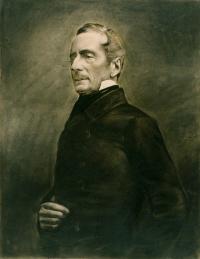
DITHYRAMBE
À M. Eugène de Genoude.
Son front est couronné de palmes et d’étoiles ;
Son regard immortel, que rien ne peut ternir,
Traversant tous les temps, soulevant tous les voiles,
Réveille le passé, plonge dans l’avenir !
Du monde sous ses yeux ses fastes se déroulent,
Les siècles à ses pieds comme un torrent s’écoulent ;
A son gré descendant ou remontant leurs cours,
Elle sonne aux tombeaux l’heure, l’heure fatale,
Ou sur sa lyre virginale
Chante au monde vieilli ce jour, père des jours !
— —
Ecoutez ! – Jéhova s’élance
Du sein de son éternité.
Le chaos endormi s’éveille en sa présence,
Sa vertu le féconde, et sa toute-puissance
Repose sur l’immensité !
Dieu dit, et le jour fut; Dieu dit, et les étoiles
De la nuit éternelle éclaircirent les voiles ;
Tous les éléments divers
A sa voix se séparèrent ;
Les eaux soudain s’écoulèrent
Dans le lit creusé des mers ;
Les montagnes s’élevèrent,
Et les aquilons volèrent
Dans les libres champs des airs !
Sept fois de Jéhova la parole féconde
Se fit entendre au monde,
Et sept fois le néant à sa voix répondit ;
Et Dieu dit : Faisons l’homme à ma vivante image.
Il dit, l’homme naquit; à ce dernier ouvrage
Le Verbe créateur s’arrête et s’applaudit !
— —
Mais ce n’est plus un Dieu ! – C’est l’homme qui soupire
Eden a fui !… voilà le travail et la mort !
Dans les larmes sa voix expire ;
La corde du bonheur se brise sur sa lyre,
Et Job en tire un son triste comme le sort.
— —
Ah ! périsse à jamais le jour qui m’a vu naître !
Ah ! périsse à jamais la nuit qui m’a conçu !
Et le sein qui m’a donné l’être,
Et les genoux qui m’ont reçu !
Que du nombre des jours Dieu pour jamais l’efface ;
Que, toujours obscurci des ombres du trépas,
Ce jour parmi les jours ne trouve plus sa place,
Qu’il soit comme s’il n’était pas !
Maintenant dans l’oubli je dormirais encore,
Et j’achèverais mon sommeil
Dans cette longue nuit qui n’aura point d’aurore,
Avec ces conquérants que la terre dévore,
Avec le fruit conçu qui meurt avant d’éclore
Et qui n’a pas vu le soleil.
Mes jours déclinent comme l’ombre ;
Je voudrais les précipiter.
O mon Dieu ! retranchez le nombre
Des soleils que je dois compter !
L’aspect de ma longue infortune
Eloigne, repousse, importune
Mes frères lassés de mes maux ;
En vain je m’adresse à leur foule,
Leur pitié m’échappe et s’écoule
Comme l’onde au flanc des coteaux.
Ainsi qu’un nuage qui passe,
Mon printemps s’est évanoui ;
Mes yeux ne verront plus la trace
De tous ces biens dont j’ai joui.
Par le souffle de la colère,
Hélas ! arraché à la terre,
Je vais d’où l’on ne revient pas !
Mes vallons, ma propre demeure,
Et cet oeil même qui me pleure,
Ne reverront jamais mes pas !
L’homme vit un jour sur la terre
Entre la mort et la douleur ;
Rassasié de sa misère,
Il tombe enfin comme la fleur ;
Il tombe ! Au moins par la rosée
Des fleurs la racine arrosée
Peut-elle un moment refleurir !
Mais l’homme, hélas!, après la vie,
C’est un lac dont l’eau s’est enfuie :
On le cherche, il vient de tarir.
Mes jours fondent comme la neige
Au souffle du courroux divin ;
Mon espérance, qu’il abrège,
S’enfuit comme l’eau de ma main ;
Ouvrez-moi mon dernier asile ;
Là, j’ai dans l’ombre un lit tranquille,
Lit préparé pour mes douleurs !
O tombeau ! vous êtes mon père !
Et je dis aux vers de la terre :
Vous êtes ma mère et mes sœurs !
Mais les jours heureux de l’impie
Ne s’éclipsent pas au matin ;
Tranquille, il prolonge sa vie
Avec le sang de l’orphelin !
Il étend au loin ses racines ;
Comme un troupeau sur les collines,
Sa famille couvre Ségor ;
Puis dans un riche mausolée
Il est couché dans la vallée,
Et l’on dirait qu’il vit encor.
C’est le secret de Dieu, je me tais et l’adore !
C’est sa main qui traça les sentiers de l’aurore,
Qui pesa l’Océan, qui suspendit les cieux !
Pour lui, l’abîme est nu, l’enfer même est sans voiles !
Il a fondé la terre et semé les étoiles !
Et qui suis-je à ses yeux ?
— —
Mais la harpe a frémi sous les doigts d’Isaïe ;
De son sein bouillonnant la menace à longs flots
S’échappe ; un Dieu l’appelle, il s’élance, il s’écrie :
Cieux et terre, écoutez ! silence au fils d’Amos !
— —
Osias n’était plus : Dieu m’apparut; je vis
Adonaï vêtu de gloire et d’épouvante !
Les bords éblouissants de sa robe flottante
Remplissaient le sacré parvis !
Des séraphins debout sur des marches d’ivoire
Se voilaient devant lui de six ailes de feux ;
Volant de l’un à l’autre, ils se disaient entre eux :
Saint, saint, saint, le Seigneur, le Dieu, le roi des dieux !
Toute la terre est pleine de sa gloire !
Du temple à ces accents la voûte s’ébranla,
Adonaï s’enfuit sous la nue enflammée :
Le saint lieu fut rempli de torrents de fumée.
La terre sous mes pieds trembla !
Et moi ! je resterais dans un lâche silence !
Moi qui t’ai vu, Seigneur, je n’oserais parler !
A ce peuple impur qui t’offense
Je craindrais de te révéler !
Qui marchera pour nous ? dit le Dieu des armées.
Qui parlera pour moi ? dit Dieu : Qui ? moi, Seigneur !
Touche mes lèvres enflammées !
Me voilà ! je suis prêt !… malheur !
Malheur à vous qui dès l’aurore
Respirez les parfums du vin !
Et que le soir retrouve encore
Chancelants aux bords du festin !
Malheur à vous qui par l’usure
Etendez sans fin ni mesure
La borne immense de vos champs !
Voulez-vous donc, mortels avides,
Habiter dans vos champs arides,
Seuls, sur la terre des vivants ?
Malheur à vous, race insensée !
Enfants d’un siècle audacieux,
Qui dites dans votre pensée :
Nous sommes sages à nos yeux :
Vous changez ma nuit en lumière,
Et le jour en ombre grossière
Où se cachent vos voluptés !
Mais, comme un taureau dans la plaine,
Vous traînez après vous la chaîne
Des vos longues iniquités !
Malheur à vous, filles de l’onde !
Iles de Sydon et de Tyr !
Tyrans ! qui trafiquez du monde
Avec la pourpre et l’or d’Ophyr !
Malheur à vous ! votre heure sonne !
En vain l’Océan vous couronne,
Malheur à toi, reine des eaux,
A toi qui, sur des mers nouvelles,
Fais retentir comme des ailes
Les voiles de mille vaisseaux !
Ils sont enfin venus les jours de ma justice ;
Ma colère, dit Dieu, se déborde sur vous !
Plus d’encens, plus de sacrifice
Qui puisse éteindre mon courroux !
Je livrerai ce peuple à la mort, au carnage ;
Le fer moissonnera comme l’herbe sauvage
Ses bataillons entiers !
– Seigneur ! épargnez-nous ! Seigneur ! – Non, point de trêve,
Et je ferai sur lui ruisseler de mon glaive
Le sang de ses guerriers !
Ses torrents sécheront sous ma brûlante haleine ;
Ma main nivellera, comme une vaste plaine,
Ses murs et ses palais ;
Le feu les brûlera comme il brûle le chaume.
Là, plus de nation, de ville, de royaume ;
Le silence à jamais !
Ses murs se couvriront de ronces et d’épines ;
L’hyène et le serpent peupleront ses ruines ;
Les hiboux, les vautours,
L’un l’autre s’appelant durant la nuit obscure,
Viendront à leurs petits porter la nourriture
Au sommet de ses tours !
— —
Mais Dieu ferme à ces mots les lèvres d’Isaïe ;
Le sombre Ezéchiel
Sur le tronc desséché de l’ingrat Israël
Fait descendre à son tour la parole de vie.
— —
L’Eternel emporta mon esprit au désert :
D’ossements desséchés le sol était couvert ;
J’approche en frissonnant; mais Jéhova me crie :
Si je parle à ces os, reprendront-ils la vie ?
– Eternel, tu le sais ! – Eh bien! dit le Seigneur,
Ecoute mes accents ! retiens-les et dis-leur :
Ossements desséchés ! insensible poussière !
Levez-vous ! recevez l’esprit et la lumière !
Que vos membres épars s’assemblent à ma voix !
Que l’esprit vous anime une seconde fois !
Qu’entre vos os flétris vos muscles se replacent !
Que votre sang circule et vos nerfs s’entrelacent !
Levez-vous et vivez, et voyez qui je suis !
J’écoutai le Seigneur, j’obéis et je dis :
Esprits, soufflez sur eux du couchant, de l’aurore ;
Soufflez de l’aquilon, soufflez !… Pressés d’éclore,
Ces restes du tombeau, réveillés par mes cris,
Entrechoquent soudain leurs ossements flétris ;
Aux clartés du soleil leur paupière se rouvre,
Leurs os sont rassemblés, et la chair les recouvre !
Et ce champ de la mort tout entier se leva,
Redevint un grand peuple, et connut Jéhova !
— —
Mais Dieu de ses enfants a perdu la mémoire ;
La fille de Sion, méditant ses malheurs,
S’assied en soupirant, et, veuve de sa gloire,
Ecoute Jérémie, et retrouve des pleurs.
— —
Le seigneur, m’accablant du poids de sa colère,
Retire tour à tour et ramène sa main ;
Vous qui passez par le chemin,
Est-il une misère égale à ma misère ?
En vain ma voix s’élève, il n’entend plus ma voix ;
Il m’a choisi pour but de ses flèches de flamme,
Et tout le jour contre mon âme
Sa fureur a lancé les fils de son carquois !
Sur mes os consumés ma peau s’est desséchée ;
Les enfants m’ont chanté dans leurs dérisions ;
Seul, au milieu des nations,
Le Seigneur m’a jeté comme une herbe arrachée.
Il s’est enveloppé de son divin courroux ;
Il a fermé ma route, il a troublé ma voie ;
Mon sein n’a plus connu la joie,
Et j’ai dit au Seigneur : Seigneur, souvenez-vous,
Souvenez-vous, Seigneur, de ces jours de colère ;
Souvenez-vous du fiel dont vous m’avez nourri ;
Non, votre amour n’est point tari :
Vous me frappez, Seigneur, et c’est pourquoi j’espère.
Je repasse en pleurant ces misérables jours ;
J’ai connu le Seigneur dès ma plus tendre aurore :
Quand il punit, il aime encore ;
Il ne s’est pas, mon âme, éloigné pour toujours.
Heureux qui le connaît ! heureux qui dès l’enfance
Porta le joug d’un Dieu, clément dans sa rigueur !
Il croit au salut du Seigneur,
S’assied au bord du fleuve et l’attend en silence.
Il sent peser sur lui ce joug de votre amour ;
Il répand dans la nuit ses pleurs et sa prière,
Et la bouche dans la poussière,
Il invoque, il espère, il attend votre jour.
— —
Silence, ô lyre ! et vous silence,
Prophètes, voix de l’avenir !
Tout l’univers se tait d’avance
Devant celui qui doit venir !
Fermez-vous, lèvres inspirées ;
Reposez-vous, harpes sacrées,
Jusqu’au jour où sur les hauts lieux
Une voix au monde inconnue,
Fera retentir dans la nue :
PAIX A LA TERRE, ET GLOIRE AUX CIEUX !
Alphonse de Lamartine
(1790 – 1869)
La poésie sacrée par Alphonse De Lamartine
DITHYRAMBE
Méditations poétiques
• fleursdumal.nl magazine
More in: Archive K-L, Archive K-L, CLASSIC POETRY
Kerouac on Record.
A Literary Soundtrack
He was the leading light of the Beat Generation writers and the most dynamic author of his time, but Jack Kerouac also had a lifelong passion for music, particularly the mid-century jazz of New York City, the development of which he witnessed first-hand during the 1940s with Charlie Parker, Dizzy Gillespie and Thelonious Monk to the fore.
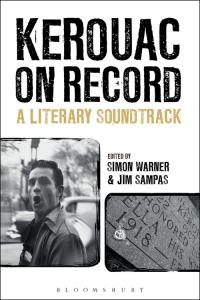
The novelist, most famous for his 1957 book On the Road, admired the sounds of bebop and attempted to bring something of their original energy to his own writing, a torrent of semi-autobiographical stories he published between 1950 and his early death in 1969. Yet he was also drawn to American popular music of all kinds – from the blues to Broadway ballads – and when he came to record albums under his own name, he married his unique spoken word style with some of the most talented musicians on the scene.
Kerouac’s musical legacy goes well beyond the studio recordings he made himself: his influence infused generations of music makers who followed in his work – from singer-songwriters to rock bands. Some of the greatest transatlantic names – Bob Dylan and the Grateful Dead, Van Morrison and David Bowie, Janis Joplin and Tom Waits, Sonic Youth and Death Cab for Cutie, and many more – credited Kerouac’s impact on their output.
In Kerouac on Record, we consider how the writer brought his passion for jazz to his prose and poetry, his own record releases, the ways his legacy has been sustained by numerous more recent talents, those rock tributes that have kept his memory alive and some of the scores that have featured in Hollywood adaptations of the adventures he brought to the printed page.
Simon Warner is a journalist, lecturer and broadcaster who teaches Popular Music Studies at the University of Leeds in the UK. He has, over a number of years, written live reviews and counterculture obituaries for The Guardian and The Independent, and has a particular interest in the relationship between the Beat Generation writers–Jack Kerouac, Allen Ginsberg, William Burroughs and others–and rock culture. His previous books include Rockspeak: The Language of Rock and Pop (1996) and Howl for Now: A Celebration of Allen Ginsberg’s epic protest poem (2005).
Jim Sampas is a music and film producer. His musical works often focuses on major cultural figures such Jack Kerouac (who is his Uncle), The Beatles, Bruce Springsteen, The Smiths, Bob Dylan, and The Rolling Stones. He has persuaded a galaxy of stars to partake of a unique aesthetic marriage, as vintage works are resurrected in contemporary arrangements in projects covered by such major news outlets as People Magazine, NPR, The New York Times, Entertainment Weekly, Rolling Stone, and many others.
Kerouac on Record
A Literary Soundtrack
Editor(s): Simon Warner, Jim Sampas
Hardback £25.20
Paperback £16.19
Published: 2018
Format: Hardback
Extent: 480 p.
ISBN: 9781501323348
Imprint: Bloomsbury Academic
Dimensions: 229 x 152 mm
£28.00
# more books
Jack Kerouac
• fleursdumal.nl magazine
More in: # Music Archive, - Book News, - Book Stories, Archive K-L, Archive K-L, Art & Literature News, AUDIO, CINEMA, RADIO & TV, Bob Dylan, David Bowie, Kerouac, Jack
Theresa Lola’s debut poetry collection In Search of Equilibrium is an extraordinary, and exacting study of death and grieving. Where the algorithms of the body and the memory fail, Lola finds the words that will piece together the binary code of family and restart the recovery program. In doing so, these unflinching poems work towards the hard-wired truths of life itself – finding hope in survival, lines of rescue in faith, a stubborn equilibrium in the equations of loss and renewal.
“You can call me arrogant, call me black Marilyn,
come celebrate with me,
I am so beautiful death can’t take its eyes off me.”
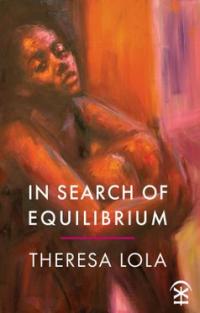 Theresa Lola’s debut poetry collection In Search of Equilibrium is an extraordinary and exacting study of death and grieving.
Theresa Lola’s debut poetry collection In Search of Equilibrium is an extraordinary and exacting study of death and grieving.
Where the algorithms of the body and the memory fail, Lola finds the words that will piece together the binary code of family and restart the recovery program.
In doing so, these unflinching poems work towards the hard-wired truths of life itself – finding hope in survival, lines of rescue in faith, a stubborn equilibrium in the equations of loss and renewal.
Theresa Lola is a British Nigerian Poet, born 1994. She was joint-winner of the 2018 Brunel International African Poetry Prize and was shortlisted for the 2017 Bridport Poetry Prize. In 2018 she was invited by the Mayor of London’s Office to read at Parliament Square alongside Sadiq Khan and actress Helen McCory at the unveiling of Millicent Fawcett’s statue. She has appeared on BBC Radio 4 Woman’s Hour, and ASOS Magazine with Octavia Collective among others. She is an alumni of the Barbican Young Poets Programme.
In Search of Equilibrium
by Theresa Lola
Poetry
Paperback
80 pages
Publisher: Nine Arches Press
Date: 28th Feburary 2019
Language: English
ISBN-10: 1911027689
ISBN-13: 978-1911027683
Price £9.99
# more poetry
Theresa Lola
• fleursdumal.nl magazine
More in: #Editors Choice Archiv, - Book News, - Bookstores, Archive K-L, Archive K-L
Daniil Charms die in werkelijkheid Daniil Ivanovic Juvacov heette, werd in 1905 in St. Petersburg geboren, waar hij in 1942 stierf.
In 1926 richtte hij met Aleksandr Vvdenski en Nikolaj Zabolotski de avantgardegroep Oberiu (Objeedinenije realnogo iskoesstva – ‘Vereniging van reële kunst’) op. Hun doel was een artistieke revolutie door te voeren, parallel aan de politieke revolutie.
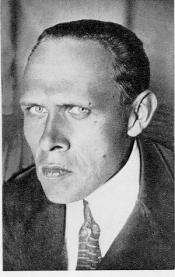 Alhoewel ze het woord niet gebruikten pleitten ze voor absurde kunst. De doodsteek kwam toen ze in 1930 beschuldigd werden van protest tegen de dictatuur van het proletariaat. Charms werd in 1931 veroordeeld tot verbanning naar Koersk, waarvandaan hij in 1933 terugkeerde.
Alhoewel ze het woord niet gebruikten pleitten ze voor absurde kunst. De doodsteek kwam toen ze in 1930 beschuldigd werden van protest tegen de dictatuur van het proletariaat. Charms werd in 1931 veroordeeld tot verbanning naar Koersk, waarvandaan hij in 1933 terugkeerde.
Hij legde zich toen, omdat zijn werk voor volwassenen niet-publicabel was geworden, toe op kinderliteratuur.
Uiteindelijk werd hij in 1941, tijdens het beleg van het Leningrad (tot 1924 Petersburg genoemd), weer gearresteerd en krankzinnig verklaard. Charms stierf begin 1942, vermoedelijk uitgehongerd, in de psychiatrische afdeling van de gevangenis Kresty in Leningrad. Hij heeft geen graf.
Na zijn dood werden zijn manuscripten teruggevonden. In de jaren zestig begonnen publicaties van dit onuitgegeven werk te verschijnen, aanvankelijk vooral in het Westen. Op grond hiervan kreeg Charms algauw de reputatie van Ruslands belangrijkste absurdistische auteur.
# meer informatie op website: https://www.uitgeverijvleugels.nl/
daniil charms
De dappere egel
2019
60 pagina’s
vertaling: jan paul hinrichs
isbn 978 90 78627 82 1
uitgeverij vleugels
€ 21,80
uitgeverij vleugels
van ’t hoffstraat 27
2665 jl bleiswijk
t 06 30 49 77 49
email: info@uitgeverijvleugels.nl
website: https://www.uitgeverijvleugels.nl/
# more books
daniil charms
De dappere egel
• fleursdumal.nl magazine
More in: - Book News, - Bookstores, Archive C-D, Archive C-D, Archive K-L, Kharms (Charms), Daniil, Modernisme, Psychiatric hospitals, REPRESSION OF WRITERS, JOURNALISTS & ARTISTS, TRANSLATION ARCHIVE
Robert Lundquist was one of the rising stars of the Santa Cruz renaissance. By the early 1970s he was published in the Paris Review, anthologized in Raymond Carver’s magazine Quarry West, and listed in Rolling Stone magazine’s ‘Best 100 American Poets.’ This is Lundquist’s first major work. Discover a lost genius in these pages.
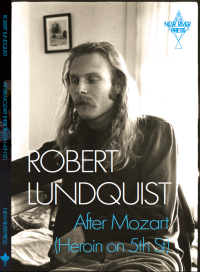 These poems were written in bursts over five decades. From 1969 to 1973, from 1980 to 1985, and from 2014 to 2018. Lundquist has an extraordinarily sensitive voice deeply engaged with the works of García Lorca, César Vallejo, Paul Celan, James Wight, Wallace Stevens, and John Ashbery. He addresses themes of love, loss, alcoholism, and emotional pain. He meditates on death, romance, and beauty with wild formal experiments and a visceral, surreal vision that is all his own.
These poems were written in bursts over five decades. From 1969 to 1973, from 1980 to 1985, and from 2014 to 2018. Lundquist has an extraordinarily sensitive voice deeply engaged with the works of García Lorca, César Vallejo, Paul Celan, James Wight, Wallace Stevens, and John Ashbery. He addresses themes of love, loss, alcoholism, and emotional pain. He meditates on death, romance, and beauty with wild formal experiments and a visceral, surreal vision that is all his own.
Central to his poetry is the changing spirit of Downtown L.A. The poet was raised and has lived his entire life there. His grandmother was a waitress in Union Station and his father an undercover policeman. Some darker chapters are inspired by a stint living next to skid row. The neighbourhoods of DTLA – the automobiles, diners, bars, porches, birds, and characters they contain – are evoked here with a noir melancholy and hallucinatory brilliance.
Until now most of this great work was available only in magazine archives, anthologies, and out-of-print chapbooks. Lundquist was previously led away from publishing by a rejection of the MFA culture that came to dominate American letters, struggles with addiction, the anxiety of influence, and a commitment to his psychoanalytic practice. A renewed interest in Lundquist’s work in recent years has resurrected his need to create, and we are all the better for it.
Robert Lundquist is a poet and practicing psychoanalyst in Los Angeles. Robert is also an avid blues harmonica player. His poems have appeared in such magazines as: The Nation, The Paris Review, Poetry Now, Kayak, and Quarry West. Robert was also one of five writers who taught poetry in the prison system in California, afterwards editing an anthology of prose and poetry by the writers in prison;, the anthology is entitled About Time II. When Robert is not with his wife, Nazare Magaz, or writing, he is seeing patients in his office above The Last Bookstore in Downtown Los Angeles. Robert knows a lot about the inner workings of Downtown Los Angeles as his Grandmother was a waitress at Union Station and his father was an under cover cop, chasing down heroin dealers when smack was coming through Flower Street. Included in his adventures in DTLA was entering Zen Center Los Angeles for two years when he was eighteen and in his adolescence taking harmonica lessons from George Smith in Watts. Robert began to write poetry at twenty and at twenty-one moved to Santa Cruz, California, to be a part of a literary renaissance in Santa Cruz where he was featured in the magazine Quarry West started by Ray Carver.
After Mozart (Heroin on 5th Street)
by Robert Lundquist (Author)
Language: English
ISBN-10: 199963103X
ISBN-13: 978-1999631031
Published: 2018
Format: Soft cover/Paperback
Publisher: New River Press Ltd
# more poetry
Robert Lundquist
fleursdumal.nl magazine
More in: - Book News, - Bookstores, Archive K-L, Art & Literature News
Met haar succesdebuut Habitus wint Radna Fabias na de C. Buddingh’-prijs 2018 en de Awater Poëzieprijs en Herman De Coninckprijs 2019 óók deze eerste editie van De Grote Poëzieprijs.

De prijs, € 25.000,- voor de beste Nederlandstalige bundel van het jaar, werd op de slotdag van het gouden Poetry International Festival uitgereikt samen met de C. Buddingh’-prijs, die naar Roberta Petzoldt ging, voor haar debuut Vruchtwatervuurlinie’. Habitus is daarmee zonder meer de meest prijswinnende debuutbundel ooit.
Ook werden op het festival prijzen uitgereikt door jongeren, een initiatief van School der Poëzie.
De School der Poëzie-Communityprijs ging naar Ted van Lieshout voor Ze gaan er met je neus vandoor,
Roelof ten Napel kreeg de Jongerenprijs voor Het woedeboek waarmee hij ook kans maakte op De Grote Poëzieprijs én de C. Buddingh’-prijs. Met het uitreikingsprogramma ‘Prijs de poëzie!’ sloot Poetry International het gouden jubileumfestival even feestelijk af als dat het begon.
De Grote Poëzieprijs voor Radna Fabias
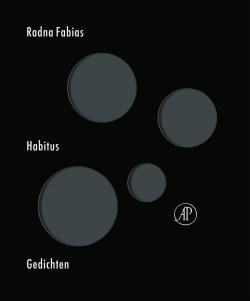 De Grote Poëzieprijs is dé prijs voor Nederlandstalige poëzie en bekroont de beste Nederlandstalige bundel van het jaar met € 25.000,-.
De Grote Poëzieprijs is dé prijs voor Nederlandstalige poëzie en bekroont de beste Nederlandstalige bundel van het jaar met € 25.000,-.
De jury van De Grote Poëzieprijs 2019 kreeg 150 bundels ter lezing en nomineerde er niet vijf maar zes, vanwege het hoge aantal inzendingen, de verlengde periode waarover werd gejureerd en de aangetroffen kwaliteit.
Opnieuw gaat de hoofdprijs dus naar Radna Fabias: “Fabias graaft net zo lang in wat bedenkelijk is – waarbij ze ook zichzelf niet spaart – totdat de complexiteit van een probleem zich openbaart.
Dit maakt dat Habitus (Arbeiderspers) deelneemt aan het ‘gesprek van de dag’, maar tegelijk – en belangrijker – dat de bundel er ook een krachtig tegengif tegen is.
Niets is eenvoudig in deze bundel, niets is op te lossen met een paar slimme oneliners of standpunten. Fabias maakt het persoonlijke politiek en het politieke persoonlijk,” oordeelde de jury.
De C. Buddingh’-prijs voor Roberta Petzoldt
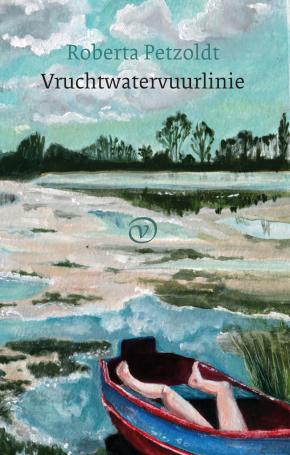 De prijs voor beste Nederlandstalige poëziedebuut – jaarlijks uitgereikt op het Poetry International Festival – gaat dit jaar naar Roberta Petzoldt.
De prijs voor beste Nederlandstalige poëziedebuut – jaarlijks uitgereikt op het Poetry International Festival – gaat dit jaar naar Roberta Petzoldt.
Haar debuut Vruchtwatervuurlinie (Van Oorschot) gaat over verlies en is strijdbaar, humoristisch, prikkelend en fel maar boven alles een rigoureus allerindividueelst onderzoek waarbij de dichter, sneller dan de eigen schaduw, de poëzie zelf op de staart probeert te trappen of ‘zonder vliegtuig de wolken raken / bewegen door / een getraind gevoel voor humor / en een eenzame logica’.
Op intieme wijze creëert de dichter een verrassend nieuw poëtisch universum, wat weergaloze gedichten en tijdloze regels oplevert: ‘ik weet dat mensen op hun honden lijken, maar jij / lijkt op de hond van iemand anders’”, aldus de jury.
Jongerenprijzen bij De Grote Poëzieprijs
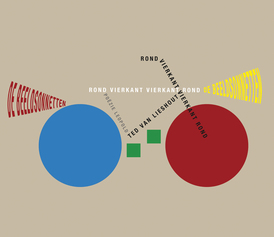 School der Poëzie reikte op de slotavond van Poetry International twee prijzen uit namens de Poëzie Community en namens scholieren uit Nederland en Vlaanderen.
School der Poëzie reikte op de slotavond van Poetry International twee prijzen uit namens de Poëzie Community en namens scholieren uit Nederland en Vlaanderen.
De Poëzie Community van School der Poëzie koos unaniem voor Ze gaan er met je neus vandoor (Leopold) van Ted van Lieshout, omdat het “een avontuur was om te lezen.” Jongeren van scholen uit Antwerpen, Amsterdam, Rotterdam en Gent namen deel aan workshops van School der Poëzie en lieten zich inspireren door de gedichten van de zes genomineerden. Zij kenden hun Jongerenprijs toe aan Roelof ten Napel voor Het woedeboek (Hollands Diep) “omdat het over woede gaat én over liefde.”
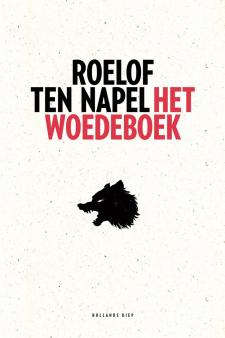 De jury van De Grote Poëzieprijs bestond uit Joost Baars, Yra van Dijk, Adriaan van Dis, Cindy Kerseborn en Maud Vanhauwaert.
De jury van De Grote Poëzieprijs bestond uit Joost Baars, Yra van Dijk, Adriaan van Dis, Cindy Kerseborn en Maud Vanhauwaert.
Zij nomineerden naast Habitus van Radna Fabias ook Nachtboot van Maria Barnas, Stalker van Joost Decorte, Het woedeboek van Roelof ten Napel, Genadeklap van Willem Jan Otten en Onze kinderjaren van Xavier Roelens. De jury van de C. Buddingh’-prijs bestond uit Els Moors, Tsead Bruinja en Kila van der Starre. Zij nomineerden ook Obelisque van Obe Alkema, Dwaallichten van Gerda Blees en Het woedeboek van Roelof ten Napel.
Eerste Grote Poëzieprijs voor Radna Fabias
Roberta Petzoldt wint ‘de Buddingh’
Jongerenprijzen voor Ted van Lieshout en Roelof ten Napel
• fleursdumal.nl magazine
More in: #Editors Choice Archiv, #More Poetry Archives, - Book News, - Bookstores, Archive E-F, Archive E-F, Archive K-L, Archive M-N, Archive O-P, Art & Literature News, Awards & Prizes, Lieshout, Ted van, Poetry International
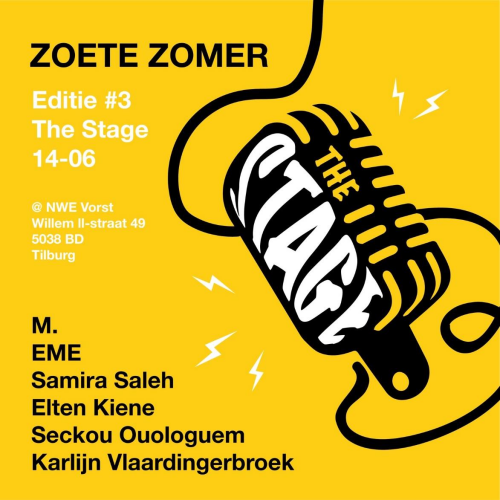
Na de succesvolle tweede editie van The Stage op het Tilt festival 2019, organiseert Onias Landveld, stadsdichter van Tilburg, de laatste Stage van het seizoen.
The Stage is een podium waar verschillende literaire en muzikale artiesten met diverse achtergronden het publiek ontmoeten. Voor de laatste editie is dit keer de tuin van de Nieuwe Vorst het podium. Op 14 Juni om 20.00 uur vindt daar “Zoete Zomer” plaats.
Geheel naar het concept van The Stage zijn er vijf verschillende literaire performances en één muzikale act. Dit keer zal het podium o.a. verwarmd worden met de tonen van funk soul band EME uit België. Op het “warmste” podium van Tilburg staan als literaire/Spoken Word acts ook:
Elten Kiene (Rotterdam)
Elten Kiene is spoken word-artiest, presentator, organisator, rapper en workshopdocent. Hij is medeoprichter en -organisator van het platform Woorden Worden Zinnen (opgericht in 2010) en was onderdeel van het hiphopcollectief Brandwerk. Als spoken word-artiest heeft Elten vele podia betreden, onder andere bij Paginagroots, Mensen Zeggen Dingen en Late Night Poetry Jam.
M. (Rotterdam)
Deze Rotterdammer ziet en vertaald de schoonheid van het hedendaagse. Vertellend over een krantenwijk alsof het een ambacht is of over een blik in iemands ogen alsof we ooit allemaal op die manier uit onze ogen hebben gekeken. M. acteert niet. Hij is op zoek naar het wezenlijke. Zijn poëzie is authentiek.
Samira Saleh ( Antwerpen)
Samira heeft een manier gevonden om haar gevoelens te vertalen naar Spoken Word. Niet alleen haar serieuze teksten bevatten een stevige inhoud, ook haar humoristische teksten geven een diepe boodschap mee voor de goede luisteraar. Ze was deel van het winnende Team Zuid in het Slam ‘t Stad slam Poetry toernooi in Antwerpen en heeft voor verschillende projecten opgetreden over heel België. Zij is winnares van de Bill Award in de categorie spreken en ze was medeorganisator van Mama’s Open mic in Antwerpen. This revolution will not be televised. It will be heard.
Seckou Ouologuem Winnaar Van Dale Spoken Awards 2015 (Antwerpen)
Seckou Ouologuem is een pionier binnen de Vlaamse slam Poetry scene. Hij stond al op verschillende poëzie- en toneelpodia in bijna alle continenten. In 2009 won hij de Kifkif Awards en in 2015 Spoken Van Dale in de categorie lyrics. Naast het geven en organiseren van lezingen, geeft Seckou ook lessen slam, rap en expressie aan (muziek)scholen, universiteiten en gevangenissen.
Karlijn Vlaardingerbroek (Tilburg)
Karlijn (29) is dichter en kunstdocent. Ze schrijft teksten en liedjes over grote en kleine dingen in het leven. Ze maakt het alledaagse bijzonder en benadert serieuze thema’s op een luchtige en speelse manier. Als voormalig lid van de Poetry Circle 013 heeft ze meermalen op verschillende podia in Nederland gestaan. Naast haar voorliefde voor schrijven en performen is zij een drijvende kracht in de organisatie van het Tilburgs Literair podium Woordenaars.
EME (Antwerpen)
Emeraude Kabeya, geboren in Kinshasa, Congo begon op de middelbare school te experimenteren met coverbands en nam deel aan enkele hiphopprojecten. In 2014 werd ze gevraagd om te zingen in een All Star-bluesproject, georganiseerd door de in Leuven gevestigde Radio Scorpio. Dat is waar ze contact maakte met de muzikanten die later haar band werden. Haar lyriek in combinatie met haar geweldige soulstem, die zowel zacht als krachtig klinkt, sloegen bij de 6 andere muzikanten in als een bom. EME brengt “Soul ‘n’ B”: een mix van soul en R & B met een funky smaak en een vleugje rock. Live neemt de band de taak op zich om mensen te laten dansen, van headbangen tot slijpen. In 2015 won EME de publieksprijs van Rockvonk en in hetzelfde jaar haalden ze de shortlist van ‘De Nieuwe Lichting’ van Studio Brussel. De laatste beschreef haar geluid als pakkend, funky en sensueel.
Onias Landveld, stadsdichter van Tilburg, organiseert ‘Zoete Zomer’, de 3e editie van The Stage
De Nieuwe Vorst
Willem II-straat 49
5038 BD Tilburg
Kaarten & info
013 – 532 85 20
info@denieuwevorst.nl
# meer informatie op website de nieuwe vorst
• fleursdumal.nl magazine
More in: Archive K-L, Art & Literature News, City Poets / Stadsdichters, Landveld, Onias, Literary Events, MUSIC, STREET POETRY, THEATRE
Manos de primavera. Antología poética de Federico García Lorca
Hands of Spring : Anthology of Poetry by Federico García Lorca
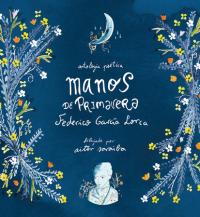 La voz de Lorca ilustrada por la mano poética de Aitor Saraiba.
La voz de Lorca ilustrada por la mano poética de Aitor Saraiba.
La luna, el agua, la tierra, las imágenes lorquianas caminan de la mano de las poéticas ilustraciones de Aitor Saraiba. Una defensa de las voces únicas y las imágenes indestructibles. Un libro, sí, un canto a la libertad y al arte.
Lorca’s voice, illustrated by the poetic hand of Aitor Saraiba.
The moon, water, earth: Lorca’s images go hand-in-hand with the poetic illustrations of Aitor Saraiba. A defense of unique voices and indestructible images. A book—and a song to freedom and art.
Manos de primavera. Antología poética de Federico García Lorca
Hands of Spring : Anthology of Poetry by Federico García Lorca
By Federico Garcia Lorca
Hardcover
Pages: 128
10 x 11
Aug 20, 2019
Published by Montena
PRH Grupo Editoria
Category: Poetry
Spanish Language Nonfiction
ISBN 9788417671419
ISBN-13: 9788417671419
$20.95
# More poetry
Anthology of Poetry
by Federico García Lorca
• fleursdumal.nl magazine
More in: - Book News, 4SEASONS#Spring, Archive K-L, Archive K-L, Art & Literature News, Garcia Lorca, Federico, WAR & PEACE
Thank you for reading Fleurs du Mal - magazine for art & literature